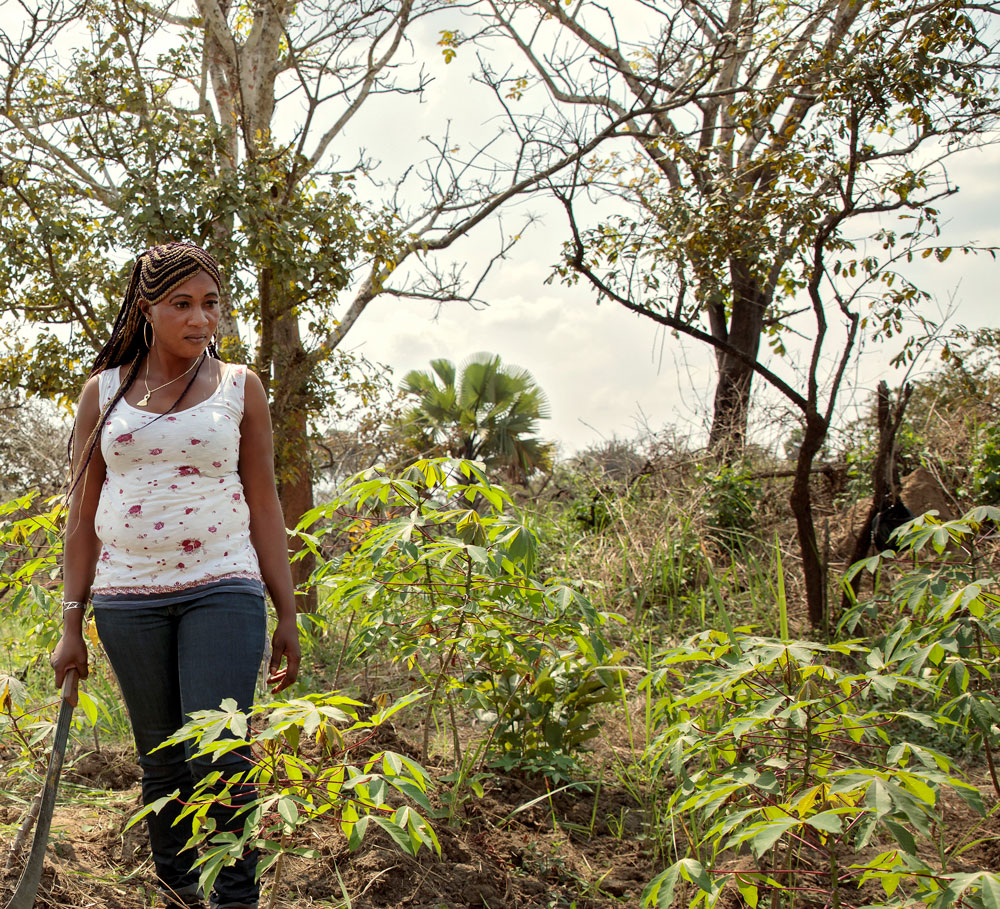Cameroon
Role of agriculture negotiations, Aid for Trade in addressing food security
Minister Luc Magloire Mbarga Atangana of Cameroon provides his views on the WTO's agriculture negotiations and how reinvigorating Aid for Trade can help developing economies boost agricultural production.
 Minister Luc Magloire Mbarga Atangana of Cameroon
Minister Luc Magloire Mbarga Atangana of Cameroon What are some of the food security challenges facing developing economies?
We need to double global agricultural production by 2050 if we are to feed humanity. We face a big challenge, and it is not just a food security challenge. Humanity's survival is at stake if we want to ensure peace, because without food, there will not be peace. So, lack of food security could turn into a security challenge more broadly.
The WTO's agriculture negotiations have been going on for too long. And not much has changed. We continue discussing proposal after proposal. It seems that the question has to do with political will from all members. There are options that can help us to fix the problem.
Take export restrictions, for example. We have seen steadfast commitment on this during the COVID-19 pandemic. But in the aftermath of the pandemic, we saw a number of WTO members putting in place export restrictions, particularly on grains and rice. And these measures cause problems for economies that depend on imports.
Many of the African states are net food importers, net rice importers. Depriving them of a staple food is a real problem. We need WTO rules that apply to all.
The current state of talks reminds me of Ernest Hemingway's novel "For whom the bell tolls?" Is the bell tolling for others? Or is it tolling for us? I think it is tolling for us. And we need to advance with agriculture negotiations.
What are some of the tools in the WTO that can help developing economies?
While we are waiting for members to take certain steps, there are practical tools that can be further developed. Take the Aid for Trade initiative, for example. This is an excellent initiative which started back in 2005 in Hong Kong, and we must go further. We must flesh it out.
African countries, developing economies in general, are for multilateralism, and multilateralism entails that each of us can participate in discussions. Developing production is an important priority simply because if there is no production, then having infrastructure does not help much. There are different ways that can help boost agricultural productivity. They range from providing cutting-edge research to developing seeds that are resilient to climate change and to ensuring accessibility and affordability of fertilizers. So, when you ask what we in the WTO can do, I think we can make better use of the Aid for Trade initiative.
What kind of partnerships are needed to achieve food security?
Obviously, the WTO on its own cannot do much. We need to join efforts. We need to pool resources. We need to find channels. There can be interactions among the different stakeholders. For example, the FAO has a lot to contribute. There's also the World Food Program. We need to also look at the IMF, the World Bank and other institutions. We need to pool all our efforts so that we can achieve this goal, because otherwise humankind is in danger.

© Photo: UN Women/Ryan Brown and afdb